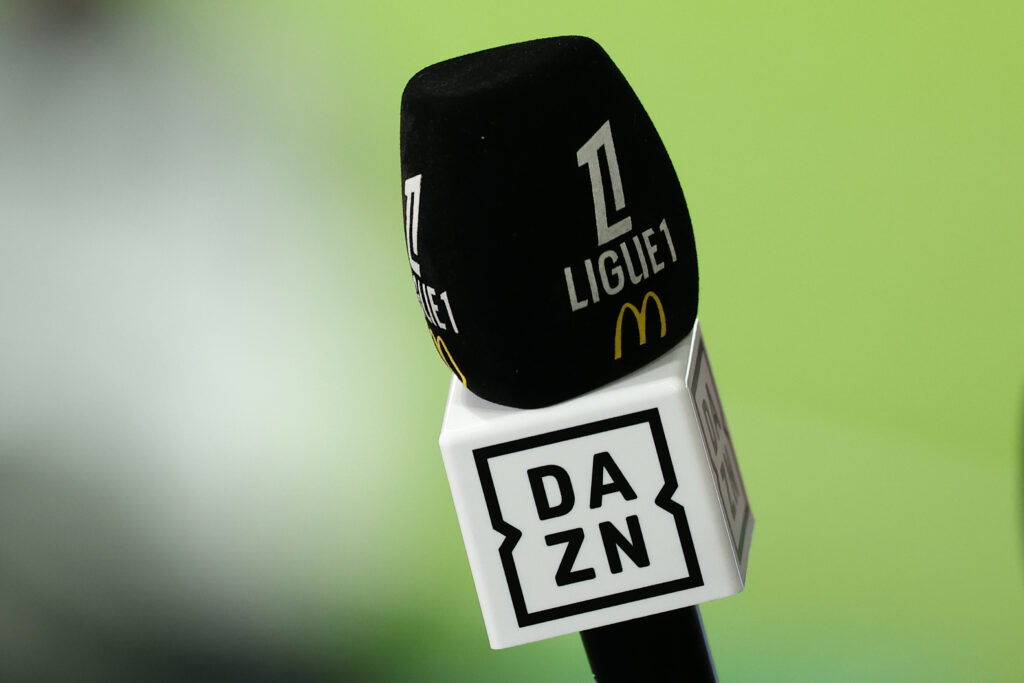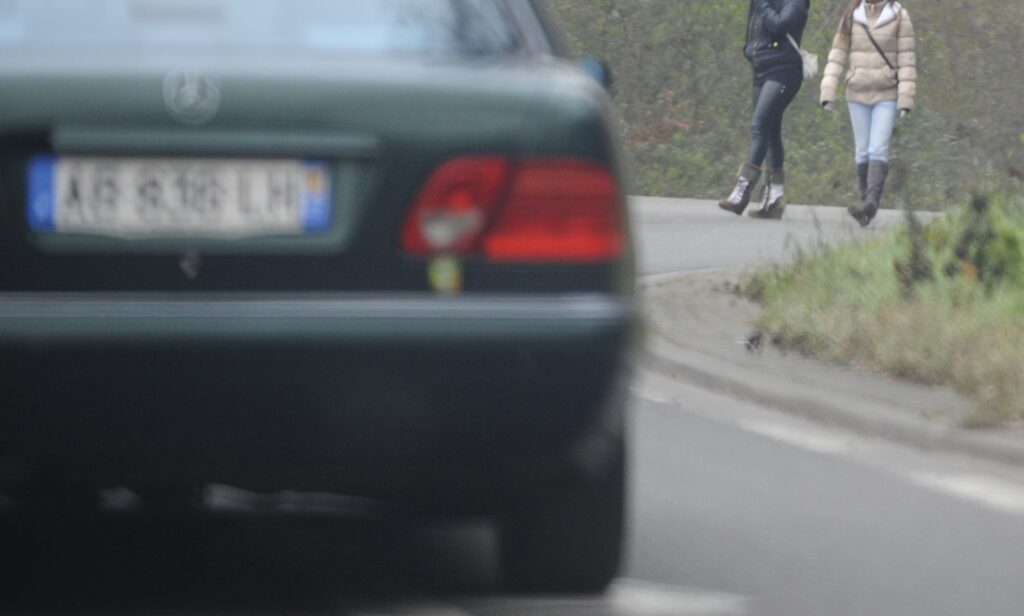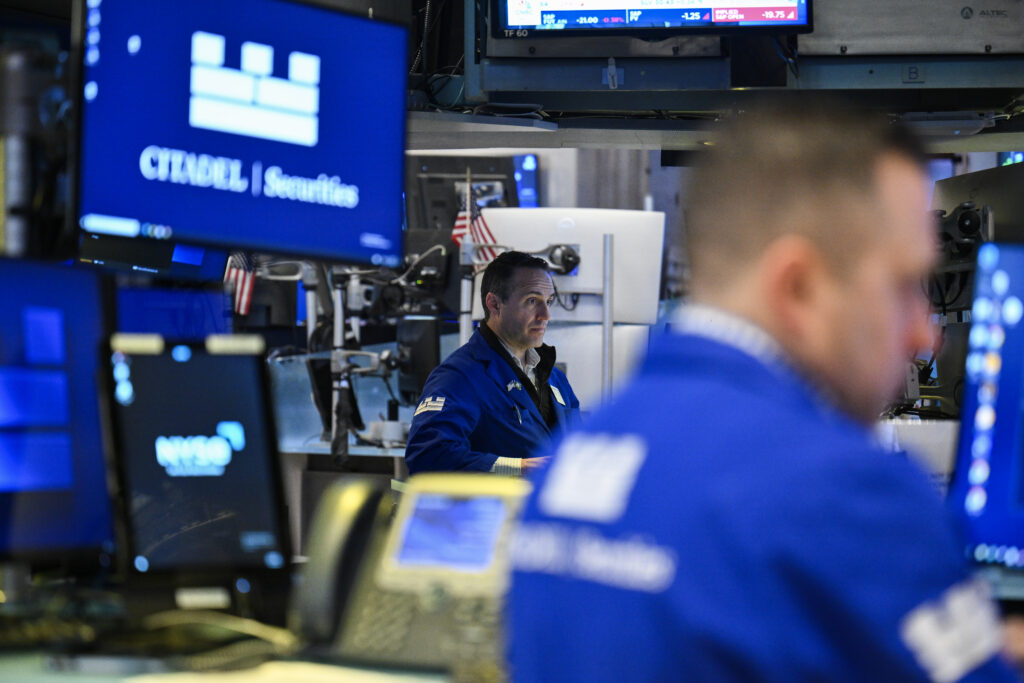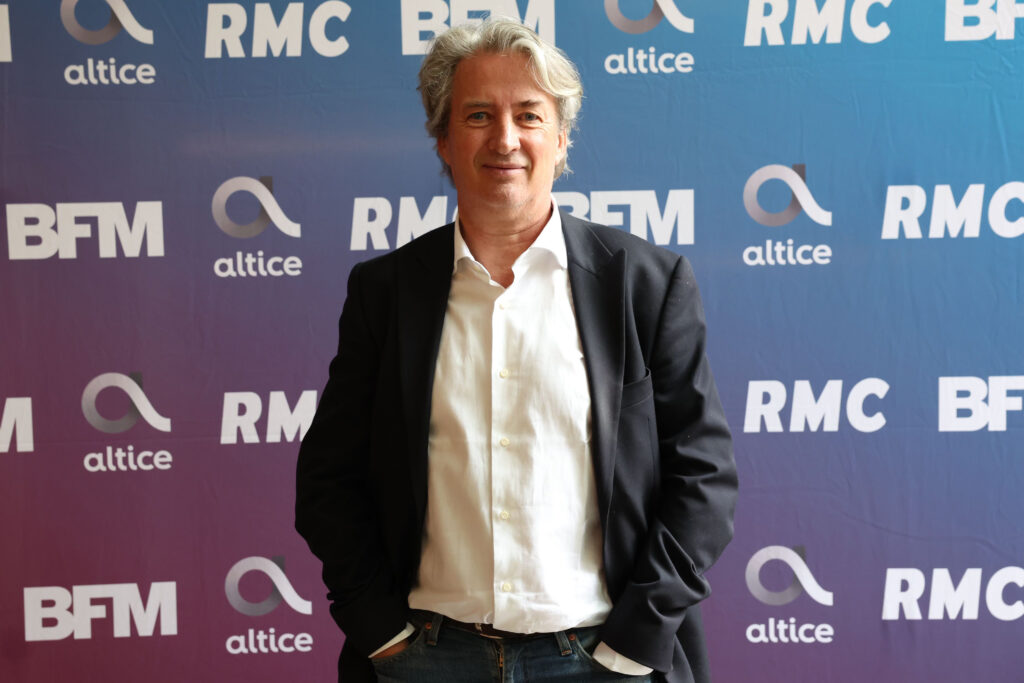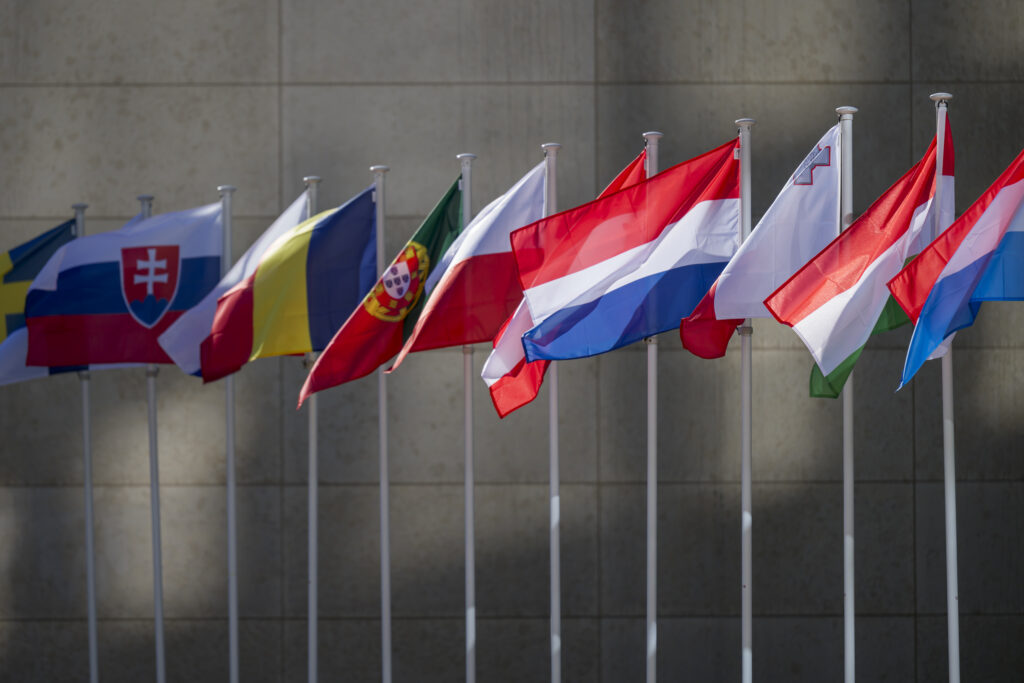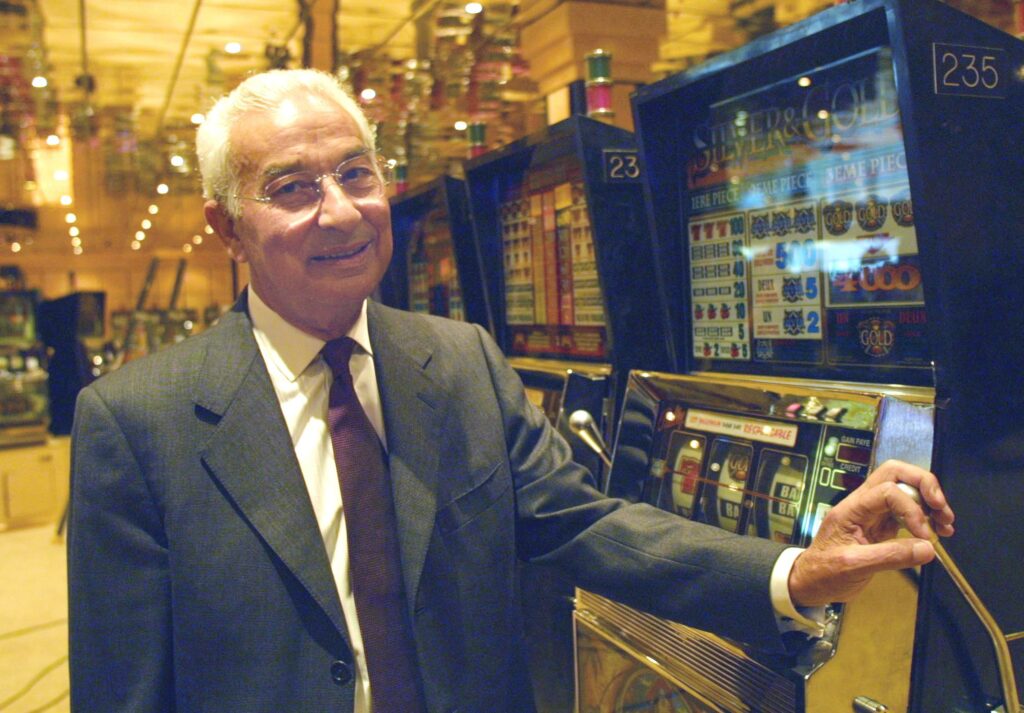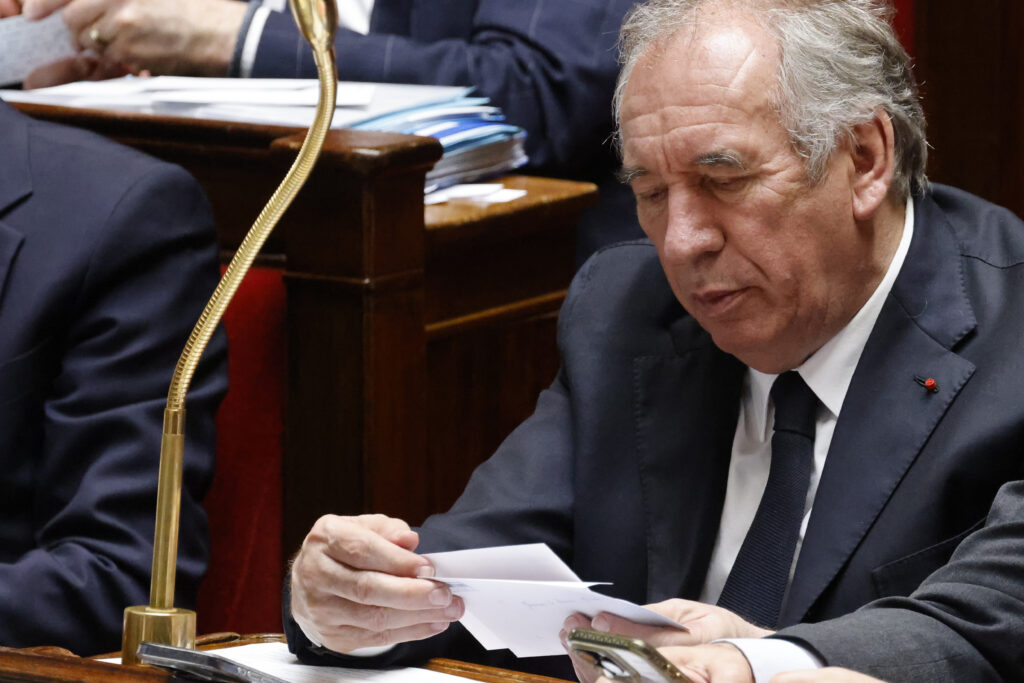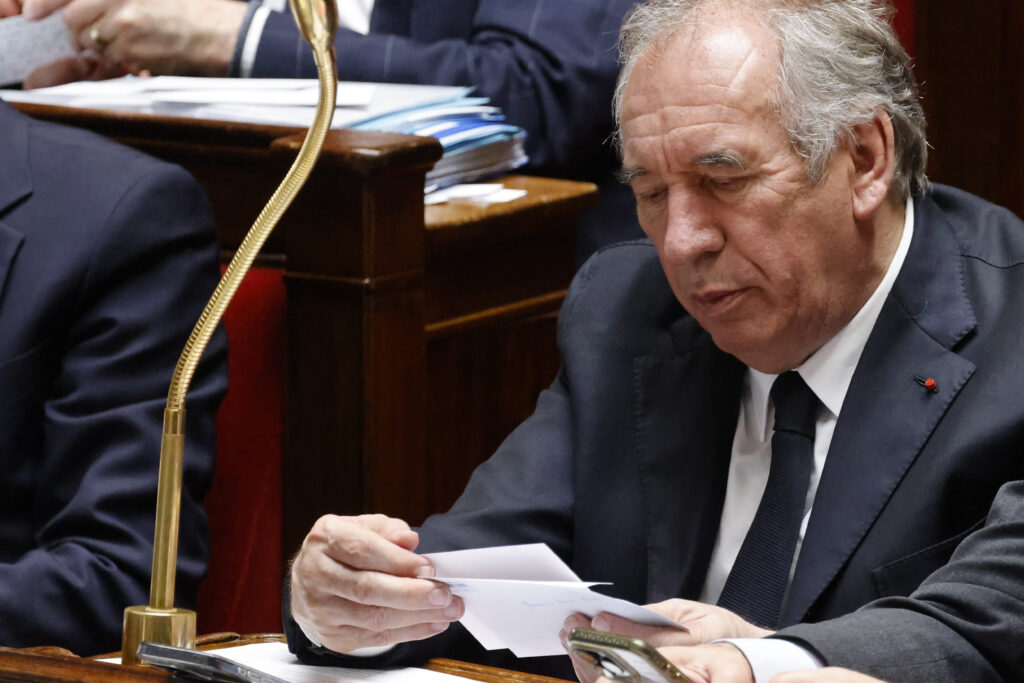Foot/Droits TV: DAZN et la LFP, divorcer pour mieux se retrouver?
Englués dans la crise des droits TV, DAZN, principal diffuseur de la Ligue 1, et la Ligue de football professionnel s’orientent vers la fin du contrat les liant jusqu’en 2029, la plateforme britannique étant toutefois prête à “investir” dans une chaîne encore à créer par la LFP.Depuis la signature de l’accord entre la Ligue et DAZN en juillet 2024 (400 millions d’euros annuels pour 8 rencontres par journée de championnat), les relations se sont progressivement tendues entre les deux parties, le diffuseur étant fragilisé par ses tarifs trop élevés, un nombre d’abonnés insuffisant (près de 650.000 selon les sources contre 1,5 millions espérés) et l’essor du piratage.Après l’échec d’une médiation pour une sortie du conflit par le haut, les points de vue semblent enfin sur le point de se rapprocher pour rompre l’accord actuel et l’idée d’une chaîne 100% L1 est devenue l’option principale pour la LFP. “Dans le cadre des discussions en cours” sur le litige entre DAZN et la LFP, “nous avons répondu présent au projet de chaîne de la Ligue”, a indiqué mercredi la plateforme qui propose d’y investir 100 millions d’euros lors des deux premières saisons.”DAZN tient à préciser qu’aucune décision n’a été arrêtée à ce jour concernant la suite de son contrat de diffusion de la Ligue 1 à l’issue de la saison 2024-2025. Nous poursuivons un dialogue constructif avec la Ligue de football professionnel, dans un esprit d’échange et de collaboration”, insiste-t-on du côté de la plateforme. – De Tavernost réchauffe les relations -Les discussions se sont faites plus intenses depuis la nomination de Nicolas de Tavernost, l’ancien patron de M6, en tant que directeur général de LFP Media, la filiale de la Ligue qui commercialise les droits TV du championnat de France. Comme elle l’assène depuis des mois, la plateforme britannique a expliqué vouloir “rester en France dans un cadre économique viable pour le succès du football français et de tous ses acteurs”. Autrement dit, DAZN souhaite continuer ses investissements en France, mais sur une autre base que celle conclue en juillet 2024 avec la LFP. “Nous ne sommes pas venus en France pour partir au bout d’un an, ni pour perdre de l’argent, précise-t-elle. Les propositions que nous avons faites depuis 4,5 mois à la Ligue de football professionnel sont faites pour construire un projet viable dans la durée, pour la LFP, les clubs, les fans de football”. Imaginée pour éviter l’écran noir lors du difficile choix du diffuseur de la Ligue 1 l’été dernier, l’idée d’une chaîne interne à la LFP n’a jamais été totalement abandonnée par ses dirigeants. – Quel partenaire pour la chaine de la LFP? -Ce projet est ainsi redevenu d’actualité du côté de la Ligue, confrontée à un marché des droits TV compliqué et au vu des difficultés rencontrées avec DAZN. “Cette chaîne se fera en partenariat avec un acteur dont on ne sait pas qui il sera car on n’a pas le droit de tester le marché tant qu’il n’y a pas un accord avec DAZN”, explique une source proche des négociations”Si la LFP se met d’accord avec DAZN, elle se tournera vers les différents acteurs du marché, BeIN, Canal, Amazon, Disney et DAZN évidemment pour savoir quel est le meilleur partenaire pour elle”, continue cette même source.Une procédure judiciaire entre les deux parties, est par ailleurs toujours en cours, DAZN réclamant pas moins de 573 millions d’euros “pour manquement observé” et “tromperie sur la marchandise”. La plateforme de streaming britannique s’estime en particulier lésée par le piratage et le manque de coopération des clubs.Mais signe d’un réchauffement dans les négociations, “la date de paiement de l’échéance du 30 avril (de 70 millions d’euros due à la Ligue pour cette saison, NDLR) a bien été décalée de quelques jours d’un commun accord entre DAZN et la LFP, dans le cadre des discussions constructives que nous menons”, a indiqué DAZN.Elle devrait être payée ce vendredi. Le même jour, le conseil d’administration de la LFP statuera sur la proposition d’investissement de DAZN.
